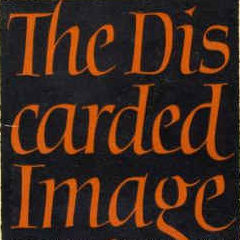
In his book The Discarded Image, C.S. Lewis explains how the medieval worldview came to be, what shaped its vices, virtues, and values. Two tributaries fed the medieval mind, Greco-Roman Paganism and Christianity, and the two streams, brackish and sweet, often mingled.
Here’s Lewis: “In a prolonged war the troops on both sides may imitate one another’s methods and catch one another’s epidemics; they may even occasionally fraternise. So in this period. The conflict between the old and the new religion was often bitter, and both sides were ready to use coercion when they dared. But at the same time the influence of the one upon the other was very great.” The Pagans and the Christians, says Lewis, “were in some ways far more like each other than either was like a modern man.”
So, too, with us moderns. Christians have many foes today: atheists, hedonists, materialists, secularists, etc. But we are more like them than we realize. Oftentimes Christians are as reflexively materialistic and hedonistic as an unbelieving neighbor or—more to the point here—opponent in a social or political dustup. Just think of two areas of concern:
(1) Our response to taking care of widows and orphans (literal or metaphorical) is often more political and civil than ecclesial or communal. Why?
(2) Our defense of traditional marriage against “gay marriage” is usually cast in sociological and cultural terms, not theological and sacramental. Why?
These and many other current social and political skirmishes are ongoing aspects of the long-raging battle between Christianity and modernity (along with its bastard child, postmodernity). But the reality is this: Despite our sometimes sharp and pitched fights, we share more presuppositions with our foes than we even know. We imitate their methods and catch their epidemics. We fraternize.
Just listen to the language we use in formulating our positions (even when talking amongst ourselves). True, we can often tack scriptural proof texts to the back end of our arguments, but that doesn’t redeem the basic assumptions beneath them. And our vices, virtues, and values are conditioned by—in many cases—the same assumptions that condition the world’s. There are differences, to be sure, but we’ve already discarded many of them.
See also: No ideas in a vacuum












